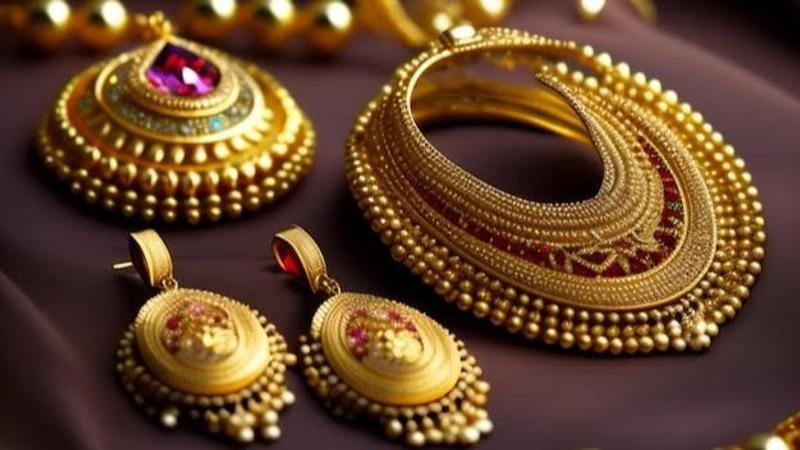Published 06:51 IST, May 10th 2024
Akshay Tritiya 2024: Keep these Dos and Don'ts in mind when buying gold jewellery
To safeguard your investment in jewellery, ensure authenticity by educating yourself on quality indicators and verifying certifications.

Akshay Tritiya 2024: Considering a gold jewellery purchase for yourself or loved ones this Akshay Tritiya? Indians, both domestically and internationally, are known for their penchant for gold adornments. With the plethora of jewellery stores gracing every corner of the country, our affinity for gold is undeniable.
However, amidst our perceived expertise in jewellery purchases, many unknowingly fall prey to acquiring impure or inferior pieces. To safeguard your investment and ensure authenticity, here's what you need to know.

Gold grabbing musts
When it comes to purchasing gold jewellery, rushing into a purchase without careful consideration can often lead to costly mistakes. Therefore, it's essential to adhere to the following guidelines to ensure that your investment in gold jewellery is both worthwhile and genuine.
First and foremost, always check the purity of the gold used in the jewellery you intend to buy. This can be done by looking for a hallmark on the piece, indicating certification by the Bureau of Indian Standards (BIS). The hallmark not only signifies the purity of the gold but also provides information such as the year of hallmark and the identifying mark of the jeweller.

Understanding these hallmark symbols is crucial for determining the caratage, denoted by the letter "K," which represents the percentage of pure gold in the jewellery. For instance, 22kt gold contains 91.6 per cent pure gold, often engraved as "916" on jewellery.
Additionally, different types of gold, such as stone-studded, white gold, or rose gold, come in varying caratages, with 18kt gold typically containing 75 per cent pure gold.
Once you've verified the purity, it's essential to cross-check the price to ensure you're paying a fair rate. Gold prices fluctuate daily based on market rates, and jewellery stores often display the daily rates of bullion for consumers.
By comparing these rates and calculating the price of gold based on its purity, you can ensure that you're getting a reasonable deal. Furthermore, don't hesitate to negotiate the making charges, which are typically a percentage of the current gold price.
Since making jewellery incurs a labour cost, jewellers often pass on these charges to buyers. Negotiating these charges can help you secure the best price on your chosen pieces, maximising the value of your investment.
Golden purchasing pitfalls to avoid
When it comes to purchasing gold jewellery, it's crucial to be aware of what not to do also, to ensure you're making a wise investment. Firstly, when faced with the choice between plain gold and stone-studded jewellery, exercise caution, especially if your primary aim is investment.
Stone-studded pieces, such as diamond earrings or ruby bangles, pose challenges in assessing the purity of the stones, potentially impacting the overall value. Moreover, the intricate designs of studded jewellery often result in higher making charges, affecting your investment returns.

Secondly, despite the abundance of BIS-hallmarked showrooms and assaying centres across India, exercise discernment in selecting where to make your purchase. While there are over 13,700 BIS-hallmarked showrooms and 435 recognised assaying centres, some areas, particularly rural regions, may lack these facilities.
Therefore, it's crucial to buy jewellery only from reputable, BIS-hallmarked jewellers to ensure authenticity and quality. Refrain from being swayed by unusually low prices offered by non-hallmarked stores, as compromising on hallmarking compromises the assurance of gold purity and quality.
Furthermore, when considering reselling your gold jewellery, avoid selling it to jewellers other than the original seller. While many jewellers offer a buy-back policy guaranteeing 100 per cent of the net gold value, selling to a different jeweller may result in deductions, particularly in making charges, impacting your returns.
Additionally, always insist on receiving a bill for your jewellery purchase, regardless of the transaction amount. This not only ensures transparency regarding taxes and transaction details but also protects you from potential legal complications when reselling or exchanging jewellery in the future.
Updated 11:18 IST, August 2nd 2024




